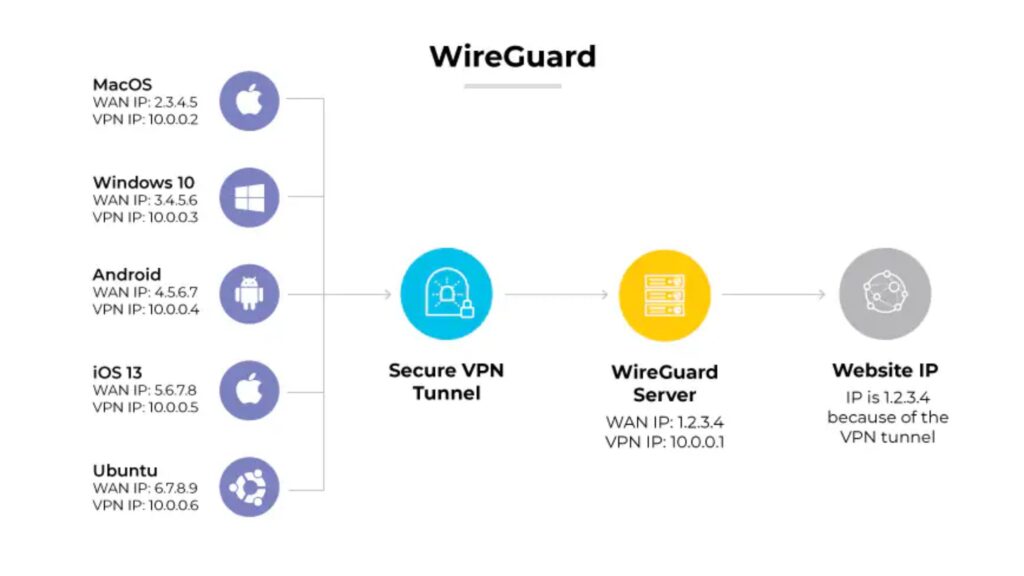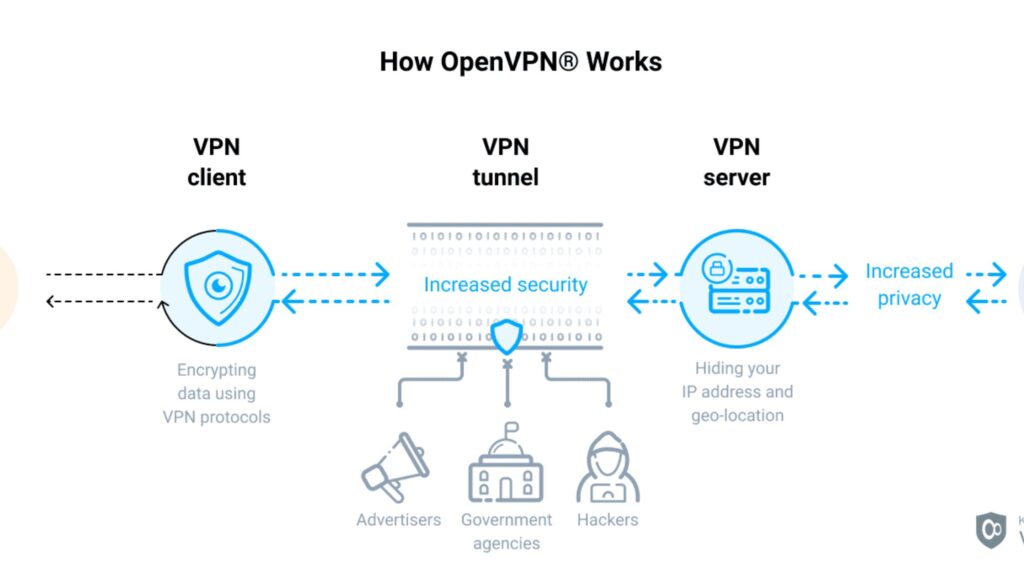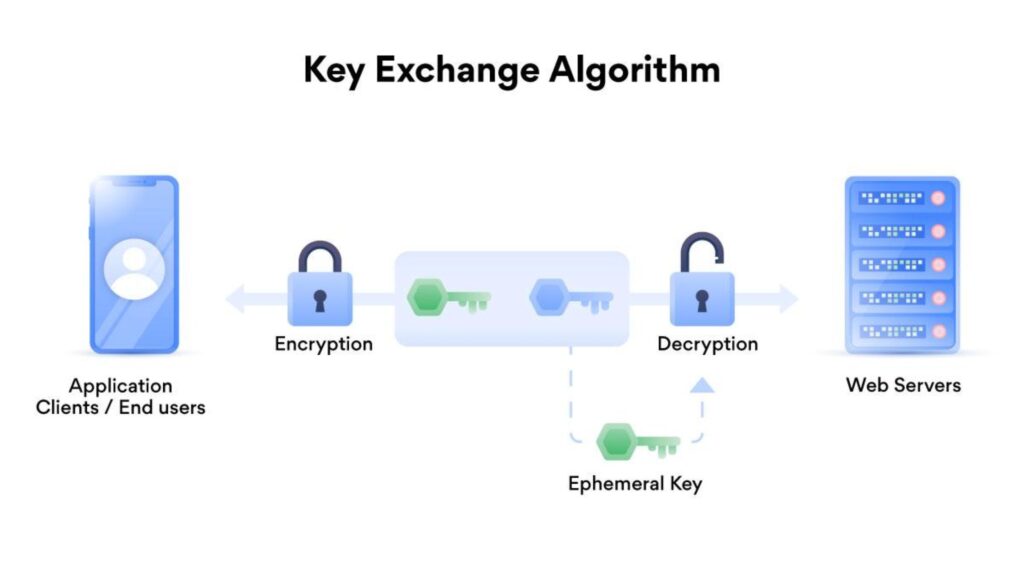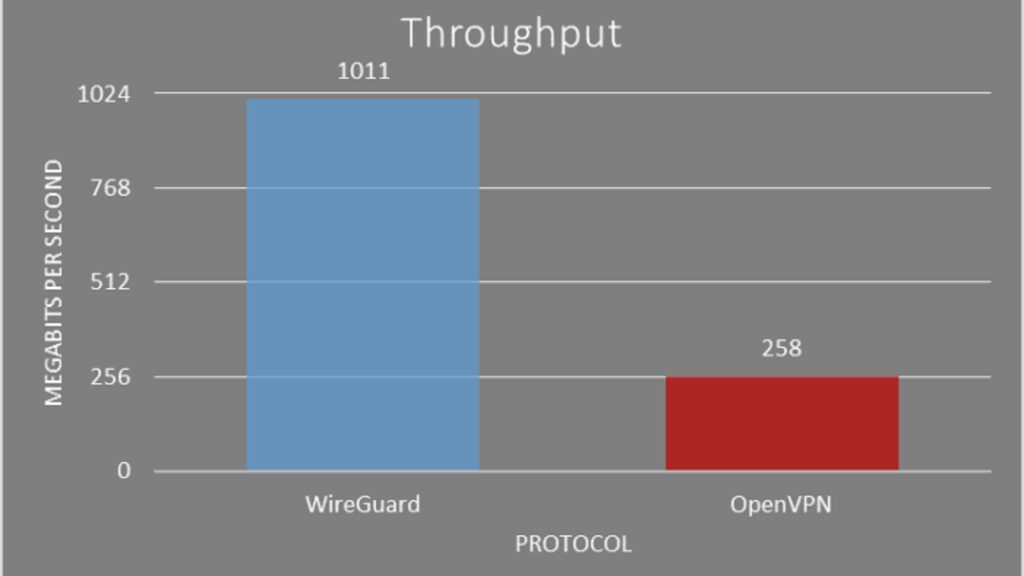Nowadays, online users pay attention to a strong protection on online privacy and security. Virtual Private Networks (VPNs) have emerged as a crucial tool in this endeavor, providing encrypted connections that shield internet traffic from prying eyes. WireGuard and OpenVPN are two of the most popular VPN protocols. But between WireGuard vs OpenVPN, which offers the most effective balance of speed, security, and ease of use to address these challenges?
This article aims to provide a comprehensive comparison of WireGuard vs OpenVPN , delving into their technical specifications, performance characteristics, security strengths, ease of use, and adaptability across various network environments. By examining these critical aspects, this analysis will equip readers with a thorough understanding of the nuances of each protocol.
WireGuard: Overview
WireGuard, a relatively new protocol, has garnered attention for its focus on speed and modern cryptographic techniques.
What is WireGuard?
WireGuard is a new type of VPN. It’s made to be easy to use, fast, and safe. WireGuard is different from older, more complicated protocols like IPsec and OpenVPN.
One big thing about WireGuard is that it has very little code, only around 4,000 lines. This is much less than older VPNs, which can have many thousands of lines. Because WireGuard is small, it is easier to check for problems and less likely to have security holes. WireGuard also uses very good, modern ways to keep your information safe. It was created by Jason A. Donenfeld and was first made for computers using Linux. This shows that it’s made to work well with modern computer systems.
It’s important to know that WireGuard only uses one way to send information over the internet, called UDP. This can make WireGuard fast, but it might not work on some networks that block UDP. To understand further, read the specifics and advantages of WireGuard VPNs utilizing this modern protocol.

How does it work?
WireGuard makes safe “tunnels” between your devices using new ways to hide and protect information. The main parts of how it works are special ways to make sure network tunnels are secure and fast. WireGuard knows which computer is which by using special public keys, like digital addresses. This helps send data quickly to the right place in the secure tunnel.
WireGuard achieves its speed through several key factors:
- Lightweight Codebase: Its significantly smaller amount of code (around 4,000 lines) compared to older protocols means less processing is required, leading to faster speeds.
- Modern Cryptography: WireGuard utilizes efficient and faster cryptographic algorithms, contributing to quicker encryption and decryption of data.
- UDP Protocol: While mentioned as a potential limitation, using UDP (User Datagram Protocol) generally offers lower overhead and faster data transfer compared to TCP (Transmission Control Protocol) in many scenarios.
For keeping your data secret while it travels, WireGuard uses something called ChaCha20. It often uses another thing called Poly1305 to make sure the data hasn’t been changed. This works well on different types of computers, even ones that don’t have special parts for security.
To make sure only the right people can connect, WireGuard uses Curve25519. This is a safe way for computers to agree on secret codes even if others are watching. For organizing data, it uses BLAKE2s. It also uses SipHash24 to protect lists of information and HKDF to create secret keys.
When two devices start talking with WireGuard, it happens very quickly. It uses a system that only takes a short time to set up the secure connection. This quick setup also makes sure that if a secret key is ever found, it won’t open up old messages.
Pro & Cons
Here’s a simple comparison of the good and bad things about WireGuard:
| Pros | Cons |
| Usually faster | Can be blocked on some networks |
| Modern, easy to check, smaller risk | Server might store your internet address for a while |
| Fast to connect and reconnect | Newer, less tested over a long time |
| Less battery drain on phones and tablets | Doesn’t have built-in ways to hide VPN use |
| Open source, everyone can look at it | Needs extra setup for giving out internet addresses |
WireGuard offers several compelling advantages that have contributed to its growing popularity. Its speed and performance are often cited as its primary strengths. The use of modern cryptography with efficient algorithms further enhances its performance. WireGuard also lower resource consumption translates to less battery drain on mobile devices, making it a more efficient choice for on-the-go use.
Despite its strengths, WireGuard also has certain drawbacks. Its exclusive reliance on UDP can be problematic in networks that block UDP traffic, potentially hindering connectivity. As a newer protocol, WireGuard is considered less mature compared to the long-established OpenVPN, meaning it has a shorter track record of real-world deployment and testing.
OpenVPN: Overview
In contrast, OpenVPN has long been a trusted and established protocol, renowned for its robust security features and broad compatibility.
What is OpenVPN?
OpenVPN is a very well-known type of VPN, a mature and highly configurable VPN protocol. People like OpenVPN because it’s very safe, reliable, and can be set up in many different ways. OpenVPN first came out in 2001 and has become a trusted and tested way to connect securely online for many users and VPN companies.
One of the best things about OpenVPN is that it can use very strong ways to hide your data, offering many different types of secret codes to keep your information safe. This VPN can also work with many different network setups, which makes it useful in various situations. Because OpenVPN’s open source, lots of people can look at its code and help make it better and more secure.

How does it work?
OpenVPN works by making safe and hidden “tunnels” for your internet data to travel between your device and a VPN server. It uses a special tool called OpenSSL, which has many ways to encrypt and decrypt information. This lets OpenVPN use different kinds of secret codes, like AES, Blowfish, and Camellia.
OpenVPN also lets you prove who you are in different ways, like using shared secret keys, digital certificates, or usernames and passwords. For extra safety, OpenVPN often uses things like Perfect Forward Secrecy (PFS), which changes the secret codes often, and HMAC to make sure your data hasn’t been changed.

A big advantage of OpenVPN is that it can work in two main ways: TCP and UDP. TCP makes sure all your data arrives correctly, even if it takes a bit longer. UDP focuses on speed and sends data quickly without always checking if it arrived, which is good for things where a delay is bad.
OpenVPN can also get through different types of network setups like NATs and firewalls, making it very useful in different internet environments. It can be used for connecting whole offices securely or for individuals connecting from home.
Pro & Cons
Here’s a simple comparison of the good and bad things about OpenVPN:
| Pros | Cons |
| Very safe with strong encryption | Generally slower than WireGuard |
| Flexible with many setup options | Can be more complicated to set up manually |
| Works with both TCP (reliable) and UDP (fast) | Can use more computer resources (CPU and memory) |
| Works on almost all devices and systems | Larger code base can be harder to check completely |
| Open source, so everyone can check it |
OpenVPN offers numerous advantages that have solidified its position as a leading VPN protocol. Its high security is a primary draw, with strong encryption and authentication methods that are widely considered safe when properly configured. The support for both TCP and UDP protocols provides significant versatility. OpenVPN also enjoys wide compatibility, running on virtually all major operating systems and a vast array of devices, including network routers, making it a highly accessible option.
However, OpenVPN also has certain disadvantages. It is generally slower than WireGuard, particularly when using the TCP protocol. The configuration of OpenVPN can be more complex compared to WireGuard, especially for manual setups, which might be daunting for less technically inclined users.
For a deeper understanding of the benefits of choosing a reliable service, explore our comparison of paid VPNs versus free options.
What’s The Similarity Between WireGuard vs OpenVPN?
Despite their distinct architectures and design philosophies, WireGuard vs OpenVPN share several fundamental similarities.
- Open to Everyone’s Eyes: Both WireGuard and OpenVPN are open source, meaning anyone can look at their code to ensure security and even help improve them.
- Secure And Encrypted Connections: They both excel at creating super-secure, encrypted tunnels to keep your online activities private from prying eyes.
- Perfect Forward Secrecy (PFS): Both use a clever trick called Perfect Forward Secrecy, so even if a future key gets compromised, your past conversations remain a secret.
- Flexible Configuration: WireGuard vs OpenVPN protocols are flexible and can be tweaked to work well in different situations and on various networks.
- Trusted by the Best: You’ll find both WireGuard and OpenVPN widely supported by most of the top VPN services out there.
As the digital landscape evolves, the principles of secure connections extend to emerging technologies. Learn more about VPNs and their role in Web3 and blockchain interoperability.
What’s The Difference Between WireGuard vs OpenVPN?
| Feature | WireGuard | OpenVPN |
| Speed | Faster | Slower |
| Resource Consumption | Lower | Higher |
| Encryption | Modern, fixed set (ChaCha20, Poly1305, etc.) | Flexible, wide range via OpenSSL (AES, etc.) |
| Auditability | Easier (smaller codebase) | More challenging (larger codebase) |
| Platform Support | Growing, covers major modern OS | Wider, includes older OS and more devices |
| Network Environments | UDP only, less flexible in restrictive networks | UDP & TCP (including port 443), better for censorship |
| Privacy | Server stores IP until reboot (mitigations exist) | No persistent storage of user IPs by protocol |
| Maturity | Newer, less battle-tested | Older, well-established and thoroughly vetted |
| Ease of Configuration | Simpler | More complex |
Speed and Efficiency
WireGuard is widely recognized for its superior speed compared to OpenVPN. Numerous speed tests have consistently demonstrated that WireGuard can achieve significantly higher download and upload speeds than OpenVPN across various server locations.

Resource Consumption
Another key difference lies in the resource consumption of the two protocols. WireGuard is generally more lightweight and requires fewer system resources, such as CPU, memory, and battery power, compared to OpenVPN. Its efficient design makes it particularly well-suited for use on embedded systems and mobile devices where processing power and battery life are often limited.
Encryption Standards
WireGuard employs a fixed and carefully chosen set of modern cryptographic primitives, including ChaCha20 for encryption, Poly1305 for authentication, and Curve25519 for key exchange. OpenVPN, on the other hand, leverages the OpenSSL library, which provides support for a vast array of encryption algorithms.
Auditability and Codebase
WireGuard’s remarkably small codebase, consisting of approximately 4,000 lines of code, makes it considerably easier to audit for security vulnerabilities compared to OpenVPN’s much larger codebase, which is around 70,000 lines. Even though OpenVPN has been checked a lot, its large code makes a full check difficult and slow.
Platform Support
OpenVPN currently enjoys wider platform support compared to WireGuard. Due to its longer history and widespread adoption, OpenVPN is compatible with a vast array of operating systems, including older versions, and is supported by many different types of devices, including a wide range of network routers.
Network Environments
In terms of adaptability to different network environments, OpenVPN offers greater flexibility than WireGuard. OpenVPN can operate over both UDP and TCP protocols, providing the option to use TCP port 443, which is often open even in highly restrictive firewalls. WireGuard, on the other hand, exclusively uses UDP, which can be a limitation in networks that block UDP traffic.
TurisVPN – The Best VPN With WireGuard Protocol In 2025
Looking for a fast and secure VPN powered by the cutting-edge WireGuard protocol? In 2025, TurisVPN is a compelling option that deserves your attention. Here’s why TurisVPN could be the right choice for you:
- TurisVPN leverages WireGuard‘s lightweight architecture to deliver a noticeably quicker and more responsive VPN experience
- TurisVPN is built with simplicity in mind.
- TurisVPN’s strict no-logs policy means they don’t track or store your browsing history, connection times, or any other sensitive information.
- TurisVPN offers competitive pricing, with premium plans starting at an attractive $2.99 per month with a yearly subscription.

While TurisVPN might be a newer name compared to some established giants, we are dedicated to continuous improvement and providing our users with a reliable and cutting-edge service.
Bottom Line
Choosing between WireGuard vs OpenVPN comes down to what’s most important to you. WireGuard offers speed and simplicity, and services like TurisVPN are built on this for a fast experience. OpenVPN is more flexible and widely compatible. Both protocols are strong options for online privacy and security.
FAQs
Q1. Which is better: OpenVPN or WireGuard?
For most users prioritizing speed and ease of use, WireGuard is typically the better choice, while those requiring extensive customization or legacy system support may prefer OpenVPN.
Q2. Does WireGuard hide my traffic?
Yes, WireGuard encrypts and hides your traffic effectively. It uses state-of-the-art cryptography to ensure your data is secure and unreadable by third parties. However, like any VPN, WireGuard doesn’t inherently include obfuscation techniques to bypass advanced censorship or deep packet inspection; for such cases, additional methods or specialized configurations are required.






